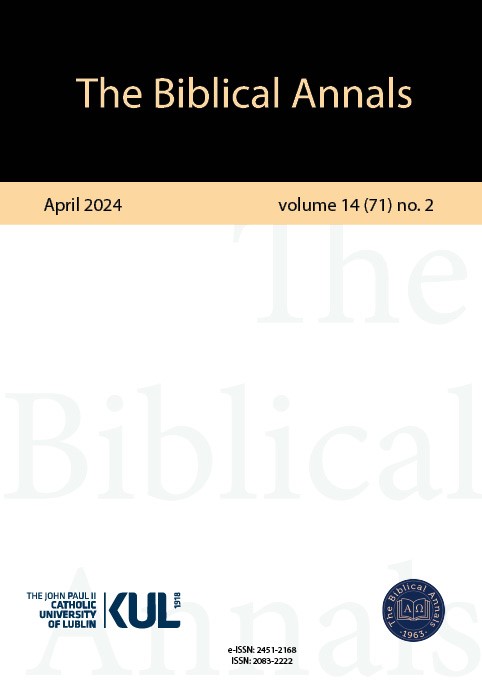The Seductive Argumentation of the Adulterous Woman in Prov 7:16–17. Invitation to Love or Preparation for Death?
The Seductive Argumentation of the Adulterous Woman in Prov 7:16–17. Invitation to Love or Preparation for Death?
Author(s): Marcin ChrostowskiSubject(s): Theology and Religion
Published by: Katolicki Uniwersytet Lubelski Jana Pawła II
Keywords: Prov 7; אִִשָּׁהָ זָרָָָה (“adulterous woman”); מַ רְַבְַדִַּיּם (“covers”); עֶ רֶֶֶשׂ (“bed”); חֲֲטֻֻבוֹת (“embroidered fabric”); אֵֵטוּן (“linen”); מִשְְִׁכָּ בָ (“bedding”); מֹֹר (“myrrh”); אֲהֲָָל
Summary/Abstract: The Book of Proverbs abounds in characteristic and often very ambivalent vocabulary. Ambiguity of symbolism can also be found in smaller thematic units, a particular example being the passage of Prov 7:16–17, in which a strange, adulterous woman encourages a young man to engage in fornication. The terms used in the text for the bed and its decoration also referred to funerary practices. Myrrh was known as an aphrodisiac, but was also associated with funeral rites. When mixed with aloe and cinnamon, it made an ointment used to anoint the bodies of the dead, among other things. Cinnamon, the third ingredient in the perfume in Prov 7:17, was used to eliminate the odour of bodies at burial. The term used to refer to the bed was also used in the description of a burial site. A young man, tempted by a harlot woman to commit adultery, is actually being prepared for death (Prov 7:22–23.26–27).
Journal: The Biblical Annals
- Issue Year: 14/2024
- Issue No: 71/2
- Page Range: 221-243
- Page Count: 23
- Language: English

